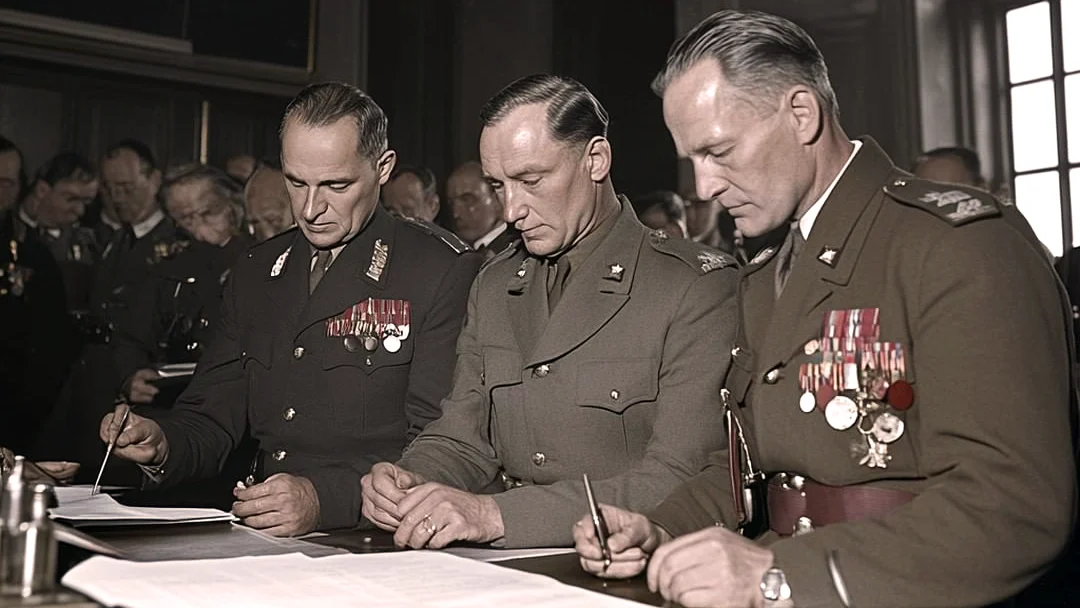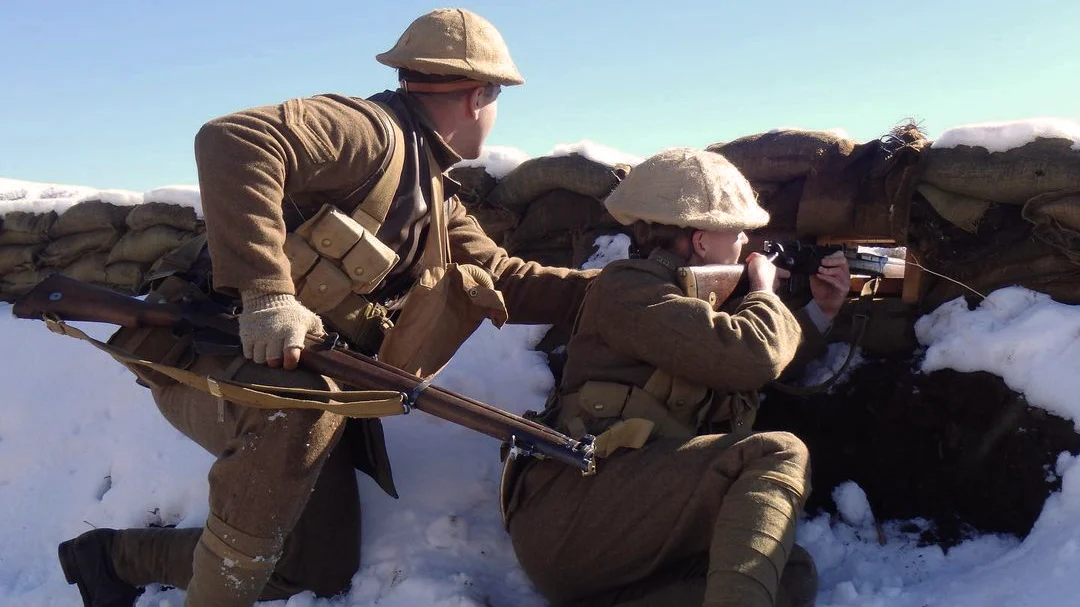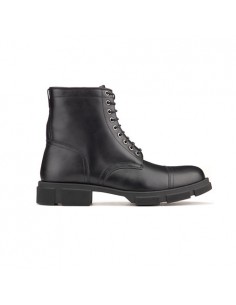- Mahsa S. Y.
- information
- 449 views
- 2 comments
Canada's involvement in both World War I (1914-1918) and World War II (1939-1945) played a significant role in shaping its national identity and cementing its reputation on the global stage. Although initially a dominion of the British Empire, Canada transitioned from a dependent colony to an increasingly autonomous country, and its military contributions during these two global conflicts were pivotal to the Allied victories. This article explores Canada's role in both world wars, including its motivations for joining, military efforts, societal impacts, and eventual outcomes.

Canada in World War I
You may wonder why Canada attended World War I (28 July 1914 – 11 November 1918). The reason is that Britain declared war in August 1914, and the Dominion of Canada – as a colony – was also legally at war. Here, we discuss three subjects:
- Canada's entry into World War I
- Military contribution and key battles of WWI
- Home front and societal impact
So, if you are interested in this part of Canada's history, stay with the following.
Canada's Entry into World War I
In 1914, when the United Kingdom declared war on Germany, Canada, as a dominion of the British Empire, was automatically drawn into the conflict. However, Canada's contribution was not passive; Prime Minister Sir Robert Borden committed the country wholeheartedly to the Allied war effort. Despite Canada having a small standing army, thousands of volunteers joined the Canadian Expeditionary Force (CEF), eager to support the British Empire and assert Canada's growing independence.
Military Contribution and Key Battles of WWI
Canada's soldiers fought bravely in many key battles of World War I, particularly in France and Belgium.
- Battle of Ypres (1915): This was one of Canada's earliest engagements, where Canadian forces withstood Germany's first major gas attack.
- Battle of the Somme (1916): Canadian troops suffered heavy casualties but demonstrated their resilience and bravery during this protracted conflict.
- Vimy Ridge (1917): Considered Canada's most significant military victory in World War I, Canadian forces captured the heavily fortified German position. This victory has been heralded as a defining moment in Canadian history, symbolizing national unity and the country's emergence on the world stage.
By the end of the war, over 620,000 Canadians had served, with more than 60,000 casualties. Canada's soldiers were recognized for their discipline and effectiveness, marking Canada as a rising military power within the British Empire.
Cyrus Crafts; Luxury & Unique Products
Canada In WWI: Home Front and Societal Impact
The war profoundly affected Canadian society. The heavy demand for war supplies led to an industrial boom. At the same time, the mobilization of soldiers and resources unified the country. However, the war also deepened divisions, particularly between English-speaking and French-speaking Canadians. Conscription, introduced in 1917, was especially contentious in Quebec, where many French Canadians opposed the idea of mandatory service in a foreign war. This conscription crisis led to political unrest and long-lasting tensions between the two linguistic communities.

Interwar Period and Canada's Evolving Autonomy
After World War I, Canada was no longer seen as merely a British colony. It emerged as a more autonomous nation. The 1919 signing of the Treaty of Versailles by Canada as a separate entity and its inclusion in the League of Nations were significant milestones in its growing independence. The Statute of Westminster in 1931 further solidified Canada's legal autonomy from Britain, allowing the country to make its own foreign policy decisions.
Canada in World War II
In the World War II (10 September 1939–15 August 1945), during Adolf Hitler's leadership, Germany, under the National Socialist (Nazi) party, sought to expand its territory and conquer Europe. On 1 September 1939, Germany invaded Poland, leading to France and Britain declaring war. Canada also joined the Allies by declaring war separately on 10 September 1939. This conflict escalated into the Second World War, which became the deadliest war in history.
Canada's Entry into the World War II
When World War II broke out in 1939, Canada was not automatically drawn into the conflict, as it had been in 1914. Instead, Canada made its own decision to declare war on Germany one week after Britain, marking a critical moment in Canadian sovereignty. Prime Minister William Lyon Mackenzie King, determined to avoid the deep divisions caused by conscription during World War I, sought to balance Canadian involvement with domestic concerns, especially in Quebec.
Military Effort and Key Contributions of WWII
Canada's military contribution in World War II was even greater than in the First World War. "The Second World War was a defining event in Canadian history, transforming a quiet country on the fringes of global affairs into a critical player in the 20th century's most important struggle." the Second World War article says.
- Battle of the Atlantic: Canadian naval forces played a crucial role in protecting Allied convoys from German U-boats, ensuring the supply of food, troops, and materials to Europe.
- Battle of Britain (1940): Canadian airmen fought alongside the Royal Air Force, defending Britain against German air raids.
- Dieppe Raid (1942): Although the raid on Dieppe was a military disaster, with heavy Canadian casualties, it provided valuable lessons for future amphibious assaults, including D-Day.
- D-Day and the Normandy Invasion (1944): Canadian forces played a vital role during D-Day, storming Juno Beach. Their success contributed significantly to the liberation of France from Nazi occupation.
By the end of the war, Canada had developed one of the largest navies and air forces in the world, with more than one million Canadians serving in uniform. The country's industrial base was heavily mobilized, producing weapons, vehicles, and aircraft for the Allied war effort. This era saw Canada grow into a significant player in global military affairs.
Canada in WW II: Home Front and Economic Impact
World War II also had profound effects on Canada's economy and society. The country experienced rapid industrialization as factories ramped up production to support the war effort. Canadian women took on unprecedented roles in the workforce, marking a shift in gender roles that persisted after the war.
Mackenzie King's government avoided a repeat of the bitter conscription crisis by initially relying on volunteers. However, as casualties mounted, conscription was eventually enacted in 1944, sparking unrest, particularly in Quebec, though on a smaller scale than during World War I.

Review of Canada's Attendance in WWI and WWII
Canada's participation in both World War I and World War II was transformative for the nation. In World War I, Canada emerged from the conflict with a stronger sense of national identity and growing independence from Britain, largely shaped by its military achievements. By World War II, Canada had become an autonomous nation, voluntarily contributing to the global war effort and solidifying its position as a middle power on the world stage. The wars not only shaped Canada's military and political status but also had lasting social, economic, and cultural impacts. Canada's sacrifices in both conflicts earned the country a respected place in the international community. They laid the foundation for its post-war prosperity and global influence. Well, this is it. It was all you need to know about Canada in WWI and WWII. Now, please tell us your ideas about the article or ask your questions by leaving a comment or sending a WhatsApp message by clicking the icon.
After the war, Canada started to improve its economy and development. So, as a practical policy, Canada helps businesses grow. Consequently, CyrusCrafts, an international drop-shipping company founded in Toronto, Ontario, is launched to deliver luxurious and unique products from and to all spots worldwide. CyrusCrafts offers Persian rugs, homeware & office furniture, handmade decorative items, pieces of framed wall art, clothing & accessories, as well as healthy organic rare food products like caviar, pistachio, saffron, etc. To order any goods from CyrusCrafts, you should only fill out its order form or text us on WhatsApp.


















Comments (2)